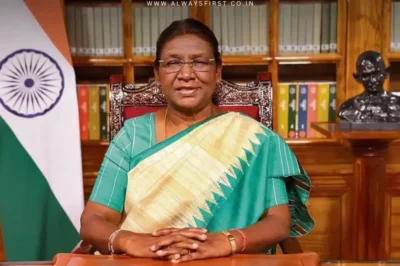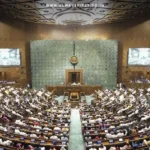Key Takeaways:
✅ SC to Review Presidential Reference: A five-judge bench will examine President Murmu’s 14 queries on bill assent timelines.
✅ April Verdict Under Scrutiny: The court had earlier ruled that Governors must act on bills without delay.
✅ Constitutional Clarity Sought: Questions include whether courts can impose deadlines on Governors & the President.
Supreme Court to Deliberate on President Murmu’s 14 Constitutional Queries
In a significant legal development, the Supreme Court has agreed to examine 14 crucial questions raised by President Droupadi Murmu regarding the timelines for Governors and the President to grant assent to state bills. A five-judge Constitution bench, led by Chief Justice B R Gavai, will begin hearings in mid-August, with a preliminary session scheduled for July 29 to set procedural timelines.
The President’s reference comes after the Supreme Court’s April 8 verdict, which mandated that Governors must act promptly on bills passed by state legislatures, stripping them of discretionary powers under Article 200 of the Constitution. Murmu, exercising her authority under the rarely invoked Article 143(1), has sought the apex court’s opinion on whether judicial intervention in fixing such timelines is constitutionally valid.
Key Questions Before the Supreme Court
The President’s reference raises several constitutional dilemmas, including:
- Can courts impose deadlines on Governors and the President for bill assent?
- Is a Governor bound by the council of ministers’ advice when deciding on a bill?
- Does judicial review apply to a Governor’s actions under Article 200?
- Can the Supreme Court’s powers under Article 142 override constitutional provisions?
The case stems from growing tensions between state governments and Governors, with several states accusing Raj Bhavans of delaying key bills for political reasons. The Supreme Court’s upcoming ruling could redefine the balance of power between elected governments and constitutional offices.
Why This Case Matters
The outcome will have far-reaching implications for India’s federal structure, determining whether Governors and the President can be held accountable for delayed decisions on crucial legislation. Legal experts suggest that the court’s opinion could either reinforce or restrict judicial oversight in such matters.
As the nation awaits the Supreme Court’s verdict, this case marks a pivotal moment in India’s constitutional history—one that could reshape the dynamics between the judiciary, executive, and state legislatures.






































Leave a Reply